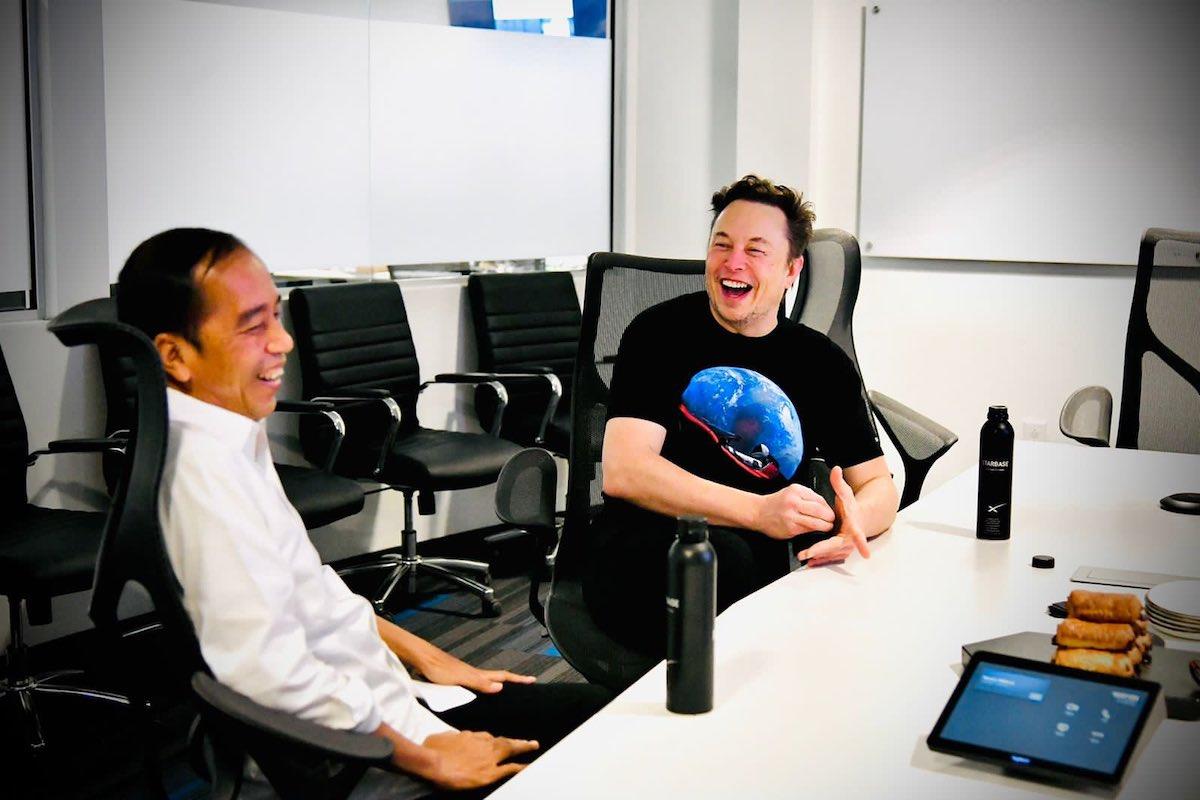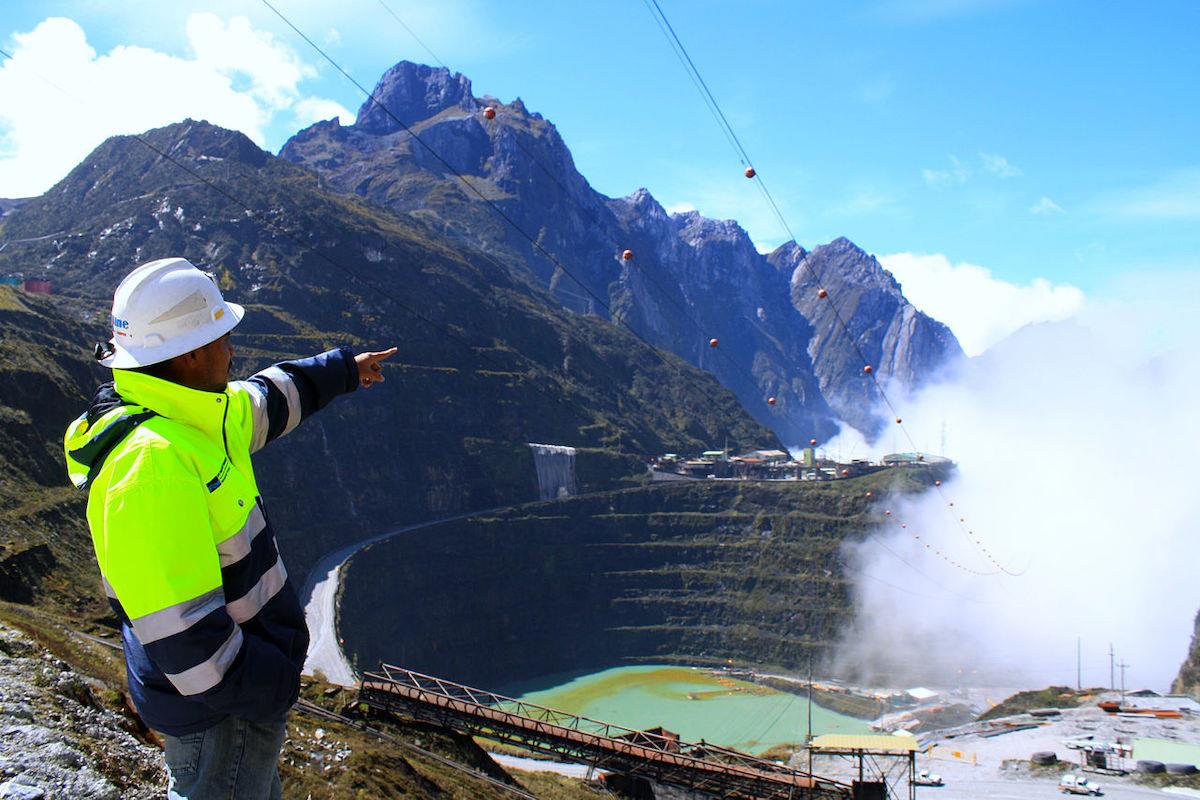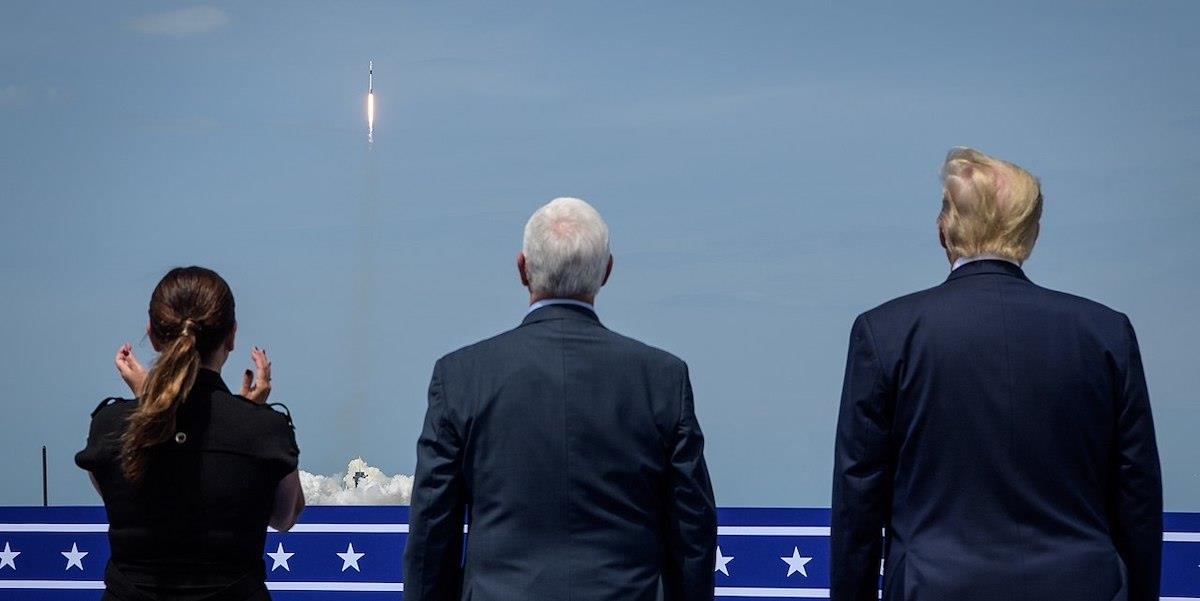(MENAFN- Asia Times)
The world's richest man, youthful South African-born entrepreneur and private spaceflight pioneer Elon Musk, has become an irresistible target of the Indonesian government in its efforts to attract heavyweight investors to a country on the cusp of a major industrial expansion.
Starting with four rounds of meetings between Musk's Tesla auto company and a government team led by chief maritime affairs and investment Minister Luhut Panjaitan in 2020-2021, the dialogue has now gone to new and unprecedented heights.
Following the May 12 United States-Association of Southeast Asian Nations (ASEAN) summit in Washington, President Joko Widodo traveled on for a much-awaited meeting with Musk at his SpaceX complex near Brownsville on the south Texas Gulf Coast.
Widodo was quoted as calling Musk a“super-genius” on the presidential secretariat website, but it isn't clear what of any substance was discussed during the meeting in an office at the Boca Chica facility, which houses a production line, test site and spaceport.
Casually dressed in his usual black T-shirt, the 50-year-old billionaire did, however, appear upbeat about future investment in a potential economic powerhouse that has emerged in relatively good shape from the Covid-19 crisis.
“We will look at the form of cooperation in many ways because Indonesia has great potential,” said the man who is worth more than the combined GDPs of Colombia, Finland, Pakistan, Chile and Portugal.“Indonesia has a population that continues to grow. It's good because we need a lot of people in the future.”
The ground for the president's visit had been laid on April 26 when Panjaitan flew in a chartered jet to Austin to brief Musk on Jakarta's plans to continue tightening controls on mineral exports as part of its overall strategy of adding value to its natural resources.
Barely a fortnight before, the talks appeared to have collapsed with Panjaitan complaining that Musk was making too many demands.“Tesla is dictating too much,” he said, stressing the need for the firm to meet domestic investment requirements.
According to insiders, Panjaitan came back from what was his first meeting with the electric-car tycoon upset and apparently dispirited, telling his aides:“It's off. We can't fulfill what they want. I told him (Musk) 'Thank you and goodbye.'”
Asked what had changed since then, Panjaitan told Asia Times:“It just happened like that.” In fact, insiders say with time running out for Widodo's visit, the minister's nephew, entrepreneur Pandu Sjahrir, played a key role in getting the talks back on track.

Joko Widodo and Elon Musk appear to have hit it off at their meeting in Texas. Photo: Supplied
Push for energy storage plant
The son of a prominent political economist, the Boston-born Sjahrir, 42, is deputy president-director of Panjaitan's holding company, PT Toba Bara Sejahtra Energi Utama Tbk, and also the chairman of the Indonesian Coal Mining Association.
Panjaitan had been pushing the Tesla management to build an energy storage system (ESS) plant in Central Java's Batang industrial park, but Musk's focus has been solely on batteries for now and on partnering with environmentally-friendly suppliers.
The key to the future of the electric vehicle (EV) and electric-power industries, an ESS is a device or combination of devices capable of storing energy from solar panels and wind turbines that can be used at a later time.
Tesla did agree to buy EV batteries from China's Contemporary Amperex Co Ltd (CATL) and South Korea's LG Energy and Hyundai Motor, which together are investing $7.2 billion in separate battery and associated facilities in Indonesia.
But Musk has been reluctant to go further than that, reportedly put off by the government wanting EV investors to partner with the state-run Indonesian Battery Corporation (IBC) which will allow for integrated development and speed up technology transfers.
IBC is a holding company comprising Indonesia Asahan Aluminium (MIND ID), gold and nickel miner Aneka Tambang (Antam), petroleum company Pertamina and utility firm Perusahaan Listrik Negara (PLN), each of which holds a 25% stake.
“The government wants win-win cooperation, that's the bottom line for us,” Panjaitan's deputy for mining and investment, Septian Seto, told CNBC Indonesia, leaving unsaid what compromises it may be prepared to make to get Musk on board.
IBC and Aneka Tambang, for example, are finalizing a partnership with CATL in which they will take a 30-40% stake in downstream operations, including smelting and the conversion of ore into nickel sulfate, used to make cathodes for lithium batteries.
Feeling the country missed an opportunity with oil and timber in previous decades, Widodo is keen for the IBC to be involved in the entire electric vehicle ecosystem, from the mining and smelting of nickel and other key ingredients to battery making and distribution.
The government has banned the export of nickel ore and plans to add bauxite and copper concentrate to the list this year, though copper is more problematic because of the healthy export revenues derived from Papua mining giant Freeport Indonesia.

The Freeport mine in Indonesia. Photo: WikiCommons
Nickel price soars
The joint venture issue aside, Musk is also worried about the current world price of nickel, with existing supply shortages and sanctions imposed on Russia for its invasion of Ukraine sending the metal to as high as $100,000 a tonne on March 8.
It has since fallen back to about $27,000 a tonne, but Seto warns the sharp price surge – and continuing uncertainty over the Ukraine crisis – has compelled Tesla and other car and battery manufacturers to look for alternatives to nickel.
Indonesia mined one million tonnes of nickel in 2021, making it the world's largest producer, nearly three times more than the second-ranked Philippines, with Russia trailing in third place – even though its reserves are of a higher grade.
S&P Global Market Intelligence analyst Jason Sappor says Tsingshan's Indonesia operation started producing high-grade nickel matte last December as part of the conversion process to more profitable nickel sulfate for the EV market.
“We expect Tsingshan's plants to help push Indonesia's primary nickel production up from 870,000 tonnes in 2021 to two million tonnes in 2026,” he said. This will cement Indonesia's position as the world's largest primary nickel producer – or 52.7% of total global output over the next four years.
The additional output will also come from Indonesia's new high-speed acid leach plants, which produce mixed hydroxide precipitate (MHP), the precursor for factory-grade nickel sulfate.
Brazilian mining company Vale SA, the operator of an integrated nickel facility in Central Sulawesi, earlier this month signed a long-term deal with Tesla to supply nickel from its Sudbury Basin mine in Ontario, Canada.
Up until now, Tesla's sole battery supplier has been Panasonic, but that is about to change with the electric car maker planning to build its own plant to make new 4680 lithium batteries which have five times the capacity of smaller cells.
Vale bought Canadian nickel miner Inco Ltd for $17 billion during the commodity super-cycle of the early 2000s, but when nickel prices crashed the company found itself in trouble – until the metal became a key ingredient in rechargeable batteries.
In June last year, PT Vale Indonesia entered into a $1.9 billion venture with China's Taiyuan Iron & Steel and Shandong Xinhai to build a ferronickel processing capacity at an industrial park adjoining Tsingshan Steel's giant Morawali nickel complex in Central Sulawesi.
Coal-fired power problem
The sprawling operation includes a three million tonne-a-year stainless steel plant, 500,000 tonnes of carbon steel capacity, a 600,000-tonne carbon ferrochrome facility and a three million tonne nickel pig iron plant.
Tesla executives, who recently visited the site, are worried about the 2,000-megawatt coal-fired station that powers the complex given Musk's single-minded focus on clean energy, which he has raised during his discussions with the Indonesians.
Tsingshan has promised not to use any more coal-fired power in Indonesia, meaning its second major nickel processing facility at Weda Bay in North Maluku will be forced to rely on a clean energy base, a move that will significantly increase costs.
The firm has said it intends to build solar and wind plants to produce EV batteries, but given the vast expanses of land needed for solar panels, experts believe renewables will have to be used in combination with geothermal and natural gas to run the rest of the operation.
That explains why Panjaitan is urging Musk to consider investing in the proposed Tanah Kuning green industrial park in North Kalimantan, which will receive all of its energy from a run-of-the-river 9,000-MW hydroelectric plant on the Kayan River.
During a groundbreaking ceremony last December, Widodo described the project as a“leap-frog – a leap we always wanted,” with a workforce of 200,000 producing green aluminum, solar panels, industrial silicone, lithium ions and semiconductors.
Indonesia's attraction for Musk is that it can deliver secure and long-term supplies of nickel and cobalt, two of the key ingredients of lithium batteries, along with alumina, tin, graphite, manganese and the rare earth Monazite.
Musk is anxious to find alternative sources of cobalt from the Democratic Republic of Congo, which has been accused of using child miners and committing other human rights abuses. It is the world's largest supplier of the metalloid and has about half of its proven reserves.
Most of Indonesia's estimated 600,000 tonnes of cobalt reserves are found in its rich nickel deposits in Sulawesi and also Halmahera, Maluku's largest island and the center of sectarian blood-letting between 1999 and 2002.
Indonesia doesn't have commercial quantities of lithium, but neighboring Australia boasts 6.3 million tonnes of lithium reserves. Although that ranks it fifth in the world, it is by far the biggest producer, turning out 55,000 tonnes in 2021.
Unlike the salt flats of Bolivia, Argentina and Chile, which form South America's so-called“lithium triangle,” Australia's lithium comes from the hard-rock mining of spodumene, an ore that contains high levels of both lithium and aluminum.

Then-President Donald Trump, right, Vice-President Mike Pence and Second Lady Karen Pence watch the launch of a SpaceX Falcon 9 rocket carrying NASA astronauts Robert Behnken and Douglas Hurley on May 30, 2020, from the balcony of the Operations Support Building II at NASA's Kennedy Space Center in Florida. Photo: WikiCommons / NASA / Bill Ingalls
Rocket launch pad
Western Australia's Greenbushes mine, a joint venture between US specialty chemical firm Albemarle and China's Tianqi Lithium, is the largest operation, contributing to a $1.6 billion trade with China, accounting for 40% of global consumption.
Although officials say it is not a priority issue at this point, Indonesia is also trying to interest Musk in locating an ultra-high-speed SpaceX rocket launch pad on the northern Papuan island of Biak.
The fact that Widodo was given a tour of the Brownsville complex suggests the idea remains alive, despite local communities complaining that the launchpad will intensify deforestation and destroy the natural environment on the 2,455 square kilometer island.
Similar opposition in the early 2000s forestalled a plan by the Russian Federal Space Agency to establish a launch site on Biak, which boasts a 3,5670-meter runway that was once a refueling stop for commercial aircraft on cross-Pacific flights.
Facing the Pacific Ocean, Biak's location at one degree south latitude makes it an ideal location for launching low-orbit communication satellites, which require less fuel to reach orbit at between 250 and 2,000 kilometers above the Earth's surface.
MENAFN16052022000159011032ID1104220176